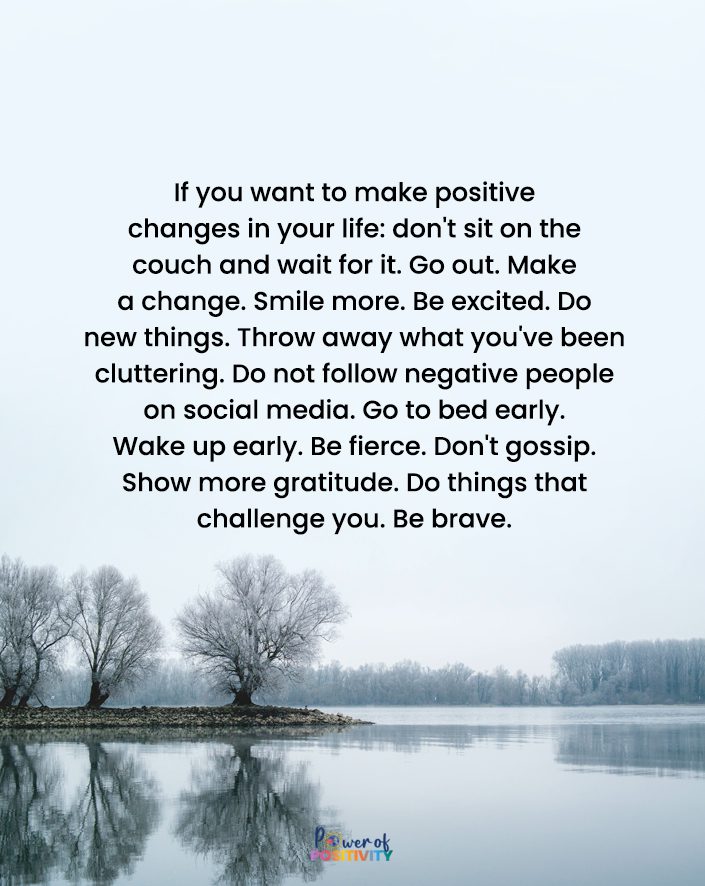Quick question: when was the last time you looked at your phone? Can this time be measured in hours, minutes…seconds?
Mobile devices, particularly smartphones, are now part and parcel of our daily lives. They can access nearly every piece of information: directions, bank account info, news and events, daily tasks, and many others. Of course, they also provide near-immediate access to less-than-vital information.
Deloitte & Touche, perhaps the world’s most prominent consulting firm, concluded in a research study that: “…mobile devices have become so ubiquitous that anyone without access to one is unable to participate in the full spectrum of activities that comprise our global economy.” In other words, smartphones are becoming less of a “want” for many.
Smartphones are excellent tools; convenient and compact, they provide access to essential information. Smart devices serve several private and business functions and have revolutionized how we communicate with one another.
But, as with any “tool,” it can be misused.
The Unintended Consequences of Overusing Your Phone
Many experts in medicine, public health, law enforcement, and others overwhelmingly agree that smartphones have become a serious distraction – a distraction that can result in severe consequences.
In a report published by the National Safety Council, researchers reviewed 180 fatal vehicle accidents from 2009 to 2011. According to the report, 52 percent of all deadly crashes stemmed from cell phones. Tragic.
Many of us are addicted to our smartphones – and this addiction has unintended consequences. These unintended consequences adversely affect our health and overall quality of life – and, maybe, the health and lives of others.
“All told, we look at our phones approximately 47 times a day, and that number rises to 82 for 18-24-year-olds. Collectively US smartphone users check their phone in the aggregate more than 9 billion times per day.” – Deloitte & Touche: 2016 Global Mobile Consumer Survey: US Edition.
Sleep and Your Phone: A Bad Combination
While we may never be involved in a car accident resulting from misguided cell phone use, it can manifest health problems. According to a study published in the journal PLOS ONE, excessive “screen time” has been linked to poor sleep quality – a widely-acknowledged public health concern.
Sufficient sleep is essential to both physical and mental health. Dr. Gregory Marcus, the author of the study and director of clinical research at the University of California, San Francisco, concurs: “There’s growing evidence that poor sleep quality is not simply associated with difficulty concentrating and being in a bad mood the next day, but may be a really important risk factor to multiple diseases.”
Medical experts have discovered a correlation between sleep deprivation and cardiovascular disease, depression, diabetes, obesity, and premature death.
The Study: Hypothesis and Methodology
The study’s primary objective was to test the hypothesis that increased screen-time results correlate with poor sleep quality. To test this hypothesis, Marcus and his team measured smartphone screen time (defined as “the number of minutes in each hour the screen was on) via an approved application (“app”).
The researchers collected the data over a 30-day window, then analyzed and categorized into total and average (per day) screen-time. The team computed the average screen time during “self-reported bedtime hours” and periods of sleep.
The researchers obtained information relating to demographics, medical history, and sleeping habits as a control method.
Results and Conclusions
Upon analyzing the aggregate data, the research team observed the following:
– Younger adults have a much higher average screen-time than other demographics.
– Participants exceeding the average screen-time had shorter durations of sleep and worse sleep-efficiency.
– Participants exceeding the average screen-time during self-reported bedtime hours “were associated with poor sleep quality, decreased sleep efficiency, and longer sleep onset latency (wakefulness).”
– Screen-time varies across demographics (e.g., age, race, socioeconomic status), potentially linking cultural aspects of a person with smartphone usage.
Related article: Here’s How Many Hours of Sleep You Need To Avoid Depression.
The study’s authors conclude the survey by citing the following information:
– The study’s results reinforce other published research – and related findings – about adults and smartphone use and “confirm that adults spend a substantial amount of time using their smartphones.”
– Screen-time is strongly associated with poor sleep.
– Poor sleep may result in increased screen-time.
– Exposure to smartphone screens during bedtime may negatively affect sleep.
Never Check Your Phone Before Going to Bed
Besides Ditching Your Phone, Here Are 12 Other Better Bedtime Habits
1. Keep All Electronics Out of Your Bedroom
While you know your cell phone can interrupt your sleep, any electronic can do the same. They emit blue light, and even the slightest of these lights can inhibit your rest. According to The Sleep Foundation, these lights stimulate the brain and make sleep challenging.
2. Wind Down and Hour Before Sleep
Many people can’t just hop into bed and fall right to sleep. So, it’s best to use a wind-down period to help your body and mind prepare. Maybe reading a book or playing the piano can help to calm you. Whatever you choose to do, make sure you do it in a dimly lit area to don’t stimulate yourself rather than relax.
3. Keep a Set Bedtime
Setting a time to go to bed and a time to wake is very important. Your body thrives on schedules, and your internal clock knows that 11 pm is time to go to sleep, and it will start preparing for that activity. You can mess up your circadian rhythm when your sleep/wake cycle is off, making you feel horrible.
According to The Sleep Foundation, your circadian rhythm is your internal clock that runs on a 24-hour cycle. This inner clock relies on environmental cues to operate, specifically light. Therefore, you feel tired when it’s dark outside and energized when it’s daytime.
4. Avoid Caffeine
While it may sound tempting to have a cup of coffee with dinner, it’s best to skip any caffeinated beverage after 3 pm. If you can’t make it that long without the caffeine boost, try avoiding these drinks three hours before your usual bedtime. Since caffeine is a stimulant, your restless nights can be caused by consuming too much of it.
5. Watch Your Liquid Intake
If you drink a big glass of water before bedtime, it only stands to reason that you will need to use the restroom during the night. Some folks have smaller bladders than others, so if you know getting up to go potty is an issue, you need to cut off all drinks after a specific time.
It’s estimated that a three-hour window with no liquids is sufficient. If your mouth gets dry, try some sugar-free gum or a mint to help keep your mouth moist without putting extra fluid into your system.
6. Try Meditation or Yoga
One problem that many people have is that they can’t sleep because their mind is racing. It’s hard to shut down your brain when it’s been going in high gear all day long. So, the best way to prepare yourself for rest is to try something like meditation or yoga.
Both ancient arts can help to release stress and tension from your body, and they will allow you to enter a peaceful state that’s conducive to sleep. Meditation helps purge all the negativity you’ve picked up from the day and gives you an overwhelming sense of calm that makes sleep effortless.
7. Don’t Lie Restless for More Than 20 Minutes
There are some nights when sleep just doesn’t come easy. If you’ve laid and tossed and turned for more than 20 minutes, get up and do something. A small activity in a dimly lit room can help encourage sleepiness.
8. Use Blackout Curtains/Blinds
Since your body needs darkness to sleep, any little bit of light can inhibit the process. The glow from the moon might be beautiful, but if this light is beaming through your windows, it will not help you rest.
Blackout curtains or blinds are an excellent option for shift workers who sleep during the day and work at night, as this will certainly mess with your circadian rhythm. However, these little devices can also help those with streetlights and other bright lights that come through the window and inhibit sleep.
9. Crate Your Pets
While sleeping with your dog or cat may be enticing, it’s best to crate them to enhance your sleep. Many animals tend to hog the bed and make you crowded and unable to rest properly. You don’t need all their dander on your sheets that can aggravate your allergies. It’s best to create your animals to ensure a good night’s rest.
10. Never Use Alcohol to Sleep
Have you ever heard of having a nightcap? Skip the alcohol if you’re having trouble sleeping, as it can mess with your sleep cycle. Instead, try a nice glass of warm milk or a natural supplement like melatonin to help you rest.
11. Set an Alarm Clock
Since you’re kicking the phone to the curb, it’s time to pull out the old-fashioned alarm clock. After you train your body to wake up with the alarm, soon you will find that you don’t even need it. Your body will awaken without this device as it’s put itself on an internal timer.
12. Wear Socks to Bed
While wearing socks to bed is natural for some folks, it can affect your sleep. Did you know that it can inhibit your rest if you have cold toes? Additionally, women going through menopause and having difficulty regulating their body temperatures may find that socks help balance their inner thermostat. Try to find some socks made of natural soft fibers, as they’re the optimal choice.

Final Thoughts on Putting Away Your Phone for a Better Night’s Rest
Americans have become accustomed to having their phones by their bedside, which isn’t a good idea. First, you’re tempted to surf the night away and take away from your precious sleep time, and second, you’re denying your partner your communication because you’re on the phone.
Insomnia is a real problem, and many people don’t realize that there are so many things they can do to help this issue. By removing electronic devices, setting a bed schedule and an alarm clock, and doing an activity that helps you wind down, you can enhance your rest and wake to feel refreshed.















